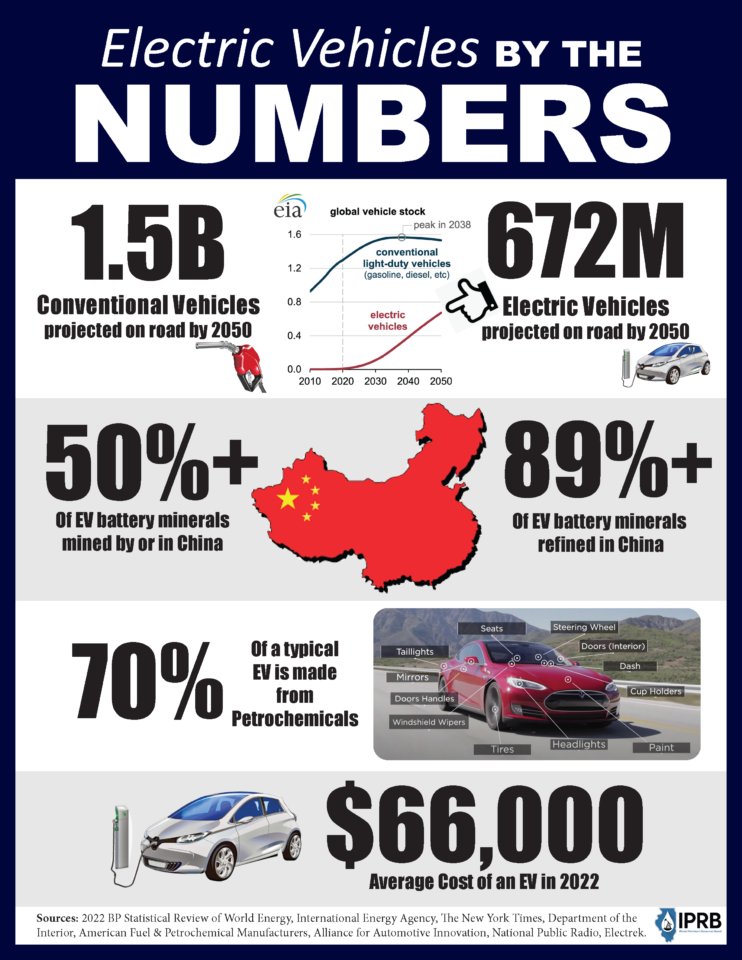Car Dealers Renew Fight Against Electric Vehicle Mandates

Table of Contents
Economic Concerns of Dealerships Facing Electric Vehicle Mandates
The transition to EVs presents significant challenges for dealerships accustomed to the internal combustion engine (ICE) market. Electric vehicle mandates, forcing a rapid shift, exacerbate these difficulties.
Impact on Sales and Profits
The shift to electric vehicles impacts dealership profitability in several key ways:
- Reduced profit margins: EVs often have lower profit margins for dealers compared to gasoline-powered vehicles, due to factors like different supply chains and manufacturing processes.
- High initial investment costs: Upgrading facilities to accommodate EVs requires substantial investments in charging stations, specialized tools, and technician training. This represents a significant upfront cost for many dealerships, particularly smaller, independent ones.
- Specialized training needs: Sales staff need training to effectively explain EV technology, charging options, and battery life to consumers. Service departments require training on EV-specific repair and maintenance procedures. This adds to the already high cost of compliance with electric vehicle mandates.
- Uncertainty surrounding consumer demand: While EV sales are growing, the market remains uncertain. Dealers face the risk of overstocking EVs if demand doesn't meet projections, leading to significant financial losses. This is a particularly significant risk given the challenges in accurately forecasting EV sales in the face of fluctuating government incentives and evolving consumer preferences.
Inventory Management Challenges
Managing EV inventory presents unique logistical hurdles:
- Inaccurate sales forecasting: Predicting EV sales is complex, considering factors like charging infrastructure availability, government incentives, and technological advancements. This makes inventory management a significant challenge.
- Increased storage and handling costs: EV batteries require specialized storage and handling to ensure safety and longevity, increasing costs.
- Risk of obsolescence: EV technology evolves rapidly. Dealers risk being left with unsold inventory of older models, especially when faced with aggressive electric vehicle mandates that push rapid technological advancement.
Concerns Regarding Consumer Readiness for Electric Vehicle Mandates
Even with the environmental benefits, significant hurdles remain before widespread EV adoption is feasible. Electric vehicle mandates, without considering these, create further problems.
Infrastructure Limitations
The lack of adequate charging infrastructure is a major barrier:
- Limited public charging stations: Many areas, especially rural ones, lack sufficient public charging infrastructure. This range anxiety is a significant concern for potential EV buyers.
- Long charging times: Charging an EV takes considerably longer than refueling a gasoline car, impacting convenience. This is compounded by the uneven reliability of charging stations.
- Charging station reliability: The reliability and availability of public charging stations remain inconsistent, further deterring potential buyers.
Affordability Issues
The high cost of EVs is a critical deterrent:
- Limited availability of affordable EVs: The current market offers fewer affordable EV options compared to ICE vehicles, limiting accessibility for many consumers.
- Higher upfront costs: The higher initial purchase price of EVs, even with government subsidies, outweighs potential long-term savings for many consumers. Electric vehicle mandates that ignore this fundamental issue will likely fail.
- Battery replacement costs: The cost of replacing EV batteries, which have a limited lifespan, represents a significant long-term expense.
The Dealers' Proposed Alternatives to Electric Vehicle Mandates
Dealers aren't against EV adoption; they advocate for a more realistic and balanced approach:
Phased Approach to EV Adoption
A gradual transition allows the market to adapt effectively:
- Incentivizing EV purchases: Targeted tax credits and rebates can stimulate EV demand without forcing a rapid, disruptive shift.
- Public-private partnerships for infrastructure: Collaborative efforts can accelerate the development of charging infrastructure.
- Supporting affordable EV development: Government support for the development and production of more affordable EV models is critical.
Focus on Consumer Education
Addressing consumer concerns is vital:
- Highlighting total cost of ownership: Educating consumers on the lower running costs and maintenance of EVs can overcome the higher upfront cost barrier.
- Addressing range anxiety: Public awareness campaigns should highlight the advancements in battery technology and the expanding charging network.
- Promoting EV safety and reliability: Many consumers have misconceptions about EV safety and reliability. Targeted educational initiatives can address these concerns effectively.
Conclusion
The renewed fight against electric vehicle mandates underscores the complexities of transitioning to a sustainable automotive future. While the shift to EVs is essential for environmental reasons, a balanced approach acknowledging the economic realities and consumer readiness is crucial. Dealers' concerns about financial impacts, infrastructure limitations, and affordability must be addressed through collaboration and phased implementation. Ignoring these risks undermines the transition to a cleaner transportation future. The conversation surrounding electric vehicle mandates must continue, fostering a dialogue that considers all stakeholders for a more successful and equitable shift towards a cleaner automotive landscape. Learn more about the ongoing debate surrounding electric vehicle mandates and how they impact your business and consumers.

Featured Posts
-
 Word Salad Or Inspiration Examining Kamala Harris Broadway Address
Apr 30, 2025
Word Salad Or Inspiration Examining Kamala Harris Broadway Address
Apr 30, 2025 -
 Royals Defeat Guardians Garcia Homer And Witt Jr S Rbi Double Secure Victory
Apr 30, 2025
Royals Defeat Guardians Garcia Homer And Witt Jr S Rbi Double Secure Victory
Apr 30, 2025 -
 Tristeza En El Futbol Argentino Por La Perdida De Un Joven Talento De Afa
Apr 30, 2025
Tristeza En El Futbol Argentino Por La Perdida De Un Joven Talento De Afa
Apr 30, 2025 -
 Eurovision 2024 Pride Flags Banned From Stage
Apr 30, 2025
Eurovision 2024 Pride Flags Banned From Stage
Apr 30, 2025 -
 Summer 2025 Your Guide To The Best Slides
Apr 30, 2025
Summer 2025 Your Guide To The Best Slides
Apr 30, 2025
